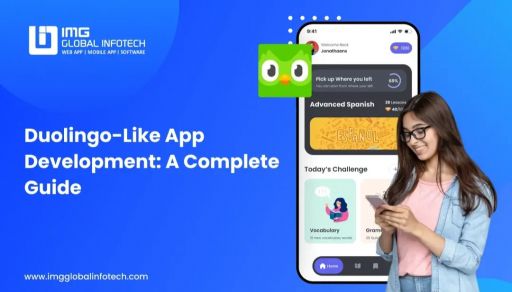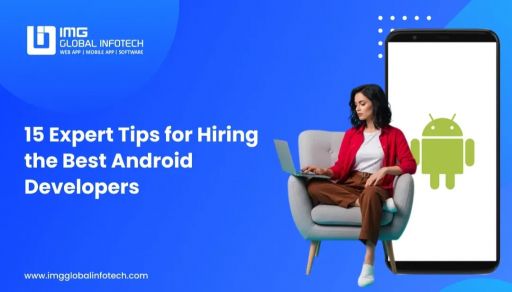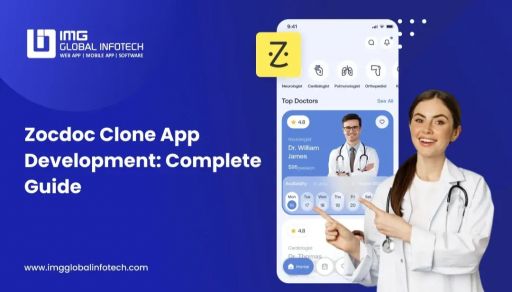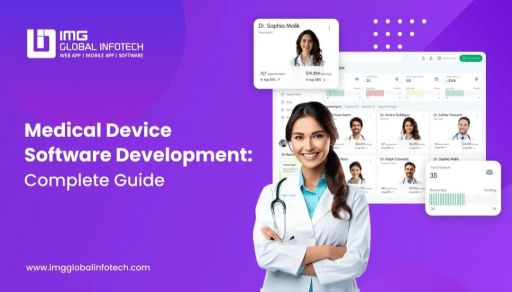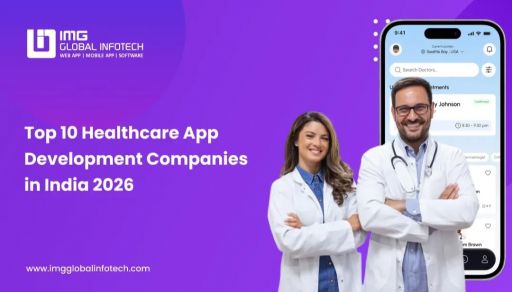Top Benefits Of Medicine Delivery Apps In Healthcare 2026
Dipti Singhal
May 23, 2025

In today’s fast-paced digital world, the healthcare industry is rapidly evolving and medicine delivery apps are at the heart of this transformation. From doorstep access to life-saving medications to seamless prescription management and real-time tracking, these apps are revolutionizing how patients receive care. This blog dives deep into the top benefits of medicine delivery apps for patients, healthcare providers, pharmacies, and the entire healthcare ecosystem.
Whether you're a hospital administrator, pharmacist, tech entrepreneur, or someone planning medicine delivery app development, understanding the impact and potential of these platforms is crucial. Discover how these apps boost medication adherence, enhance patient convenience, cut operational costs, and reshape healthcare accessibility.
Growing smartphone penetration, an ageing population, and the post-pandemic shift toward contactless care have pushed the global online-pharmacy market from US $112.46 billion in 2024 to a projected US $131.65 billion in 2026 and an eye-popping US $543 billion by 2033 (17 % CAGR).
Looking to build your own app? We also explore insights into medicine delivery app development cost, must-have features, and how to choose the right medicine delivery app development company to bring your vision to life.
What Exactly Is a Medicine Delivery App?
At its core, a medicine delivery app is a HIPAA/GDPR-compliant mobile (and often web) platform that lets patients:
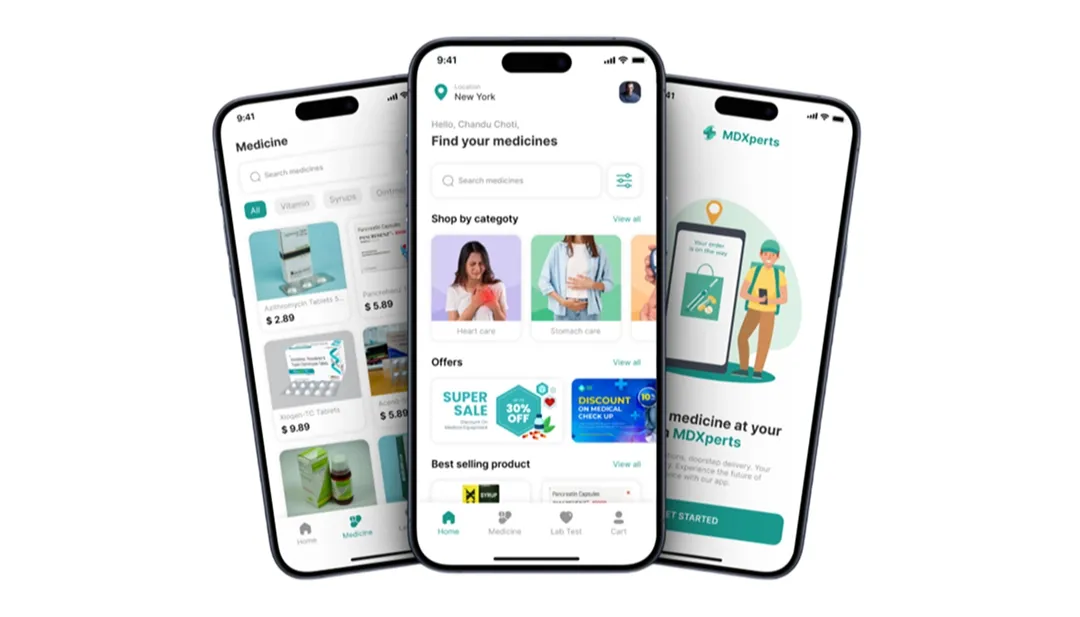
-
Upload or scan a prescription for validation
-
Browse OTC and prescription drugs, medical devices, and wellness products
-
Pay securely via card, UPI, insurance, or wallet credits
-
Track orders in real time, schedule refills, and receive adherence reminders
-
Chat with pharmacists or doctors for quick clarifications
Behind the scenes, the platform integrates with pharmacy management software, e-prescription networks, payment gateways, and last-mile couriers to fulfil each order seamlessly.
Market Snapshot & Growth Drivers
Stakeholders & Their Wins
How Medicine Delivery Apps Transform Healthcare
-
Improved Access & Equity
-
Rural and mobility-challenged patients receive medications on time, cutting therapeutic gaps.
-
-
Higher Medication Adherence
-
Push notifications, AI-driven dosage alarms, and auto-refills increase adherence rates by up to 30 % in published studies.
-
-
Supply-Chain Transparency
-
End-to-end batch/lot tracking curbs counterfeit drugs and enables instant recalls.
-
-
Actionable Patient Data
-
In-app behaviour and refill cadence feed predictive analytics, helping providers intervene before non-adherence or adverse events.
-
-
Cost and Time Savings
-
Eliminates commute, queuing, and manual claims processing; insurers save on paper handling and fraud.
-
-
Emergency & Chronic-Care Support
-
Same-day or drone drops for insulin, inhalers, or critical antibiotics reduce ER visits.
-
-
Sustainability
-
Route optimisation algorithms shrink carbon footprints compared with multiple patient trips to brick-and-mortar pharmacies.
-
Must-Have Features for Competitive Medicine Delivery App Development
2026-Ready Differentiators
-
Teleconsultation Modules – one-tap doctor video call and e-prescription generation.
-
AI Adherence Coach – conversational reminders, gamified pill streaks.
-
Voice & Multilingual Commands – crucial for elderly and low-literacy populations.
-
AR Pill Identifier – patient points camera at tablet; app verifies shape/markings to reduce errors.
-
Drone or EV-Bike Delivery – slashes last-mile time and emissions (already piloted by Amazon and UPS).
-
Open-API Ecosystem – lets wearable companies or insurers plug into medication data streams.
Also Read: How to Build a Medicine Delivery App Like Apollo Pharmacy?
Medicine Delivery App Development Cost: What to Expect in 2026
Typical Range: US $5,000 – US $8,000 for a robust MVP; enterprise-grade, multi-region platforms with telehealth, AI, and drone-ops can exceed US $15,000+.
Pro-Tip: A medicine delivery app development company can trim 20-30 % of timelines by leveraging reusable modules for login, cart, or courier APIs.
Business & Revenue Models
-
Commission / Margin Split – app takes a percentage on each sale.
-
Subscription (Prime / Plus) – annual fee for free deliveries and extra discounts.
-
PBM Contracts – partner with insurers for white-label fulfilment.
-
In-App Advertising – sponsored listings from nutraceutical brands (ensure medical-ad-policy compliance).
-
Data Insights SaaS – anonymised dashboards for pharma supply-chain optimisation.
Regulatory & Security Essentials
-
HIPAA / GDPR / PDPB encryption at rest and in transit.
-
e-Prescription Compliance – U.S. EPCS, EU eIDAS, India e-Sanjeevani.
-
Two-Factor Patient Auth – mitigates diversion and fraud.
-
NABP / LegitScript Certification – boosts search-engine trust.
-
Audit Trails & Immutable Logs – critical for malpractice defence.
-
Regular Pen-Tests & FDA MDR for IoMT – if the app connects to smart pill boxes or glucometers.
Also Read: How to Build a Medicine Delivery App Like NowRx
Choosing the Right Medicine Delivery App Development Company
When you hire app developer talent or a full-service mobile app development services partner, evaluate:
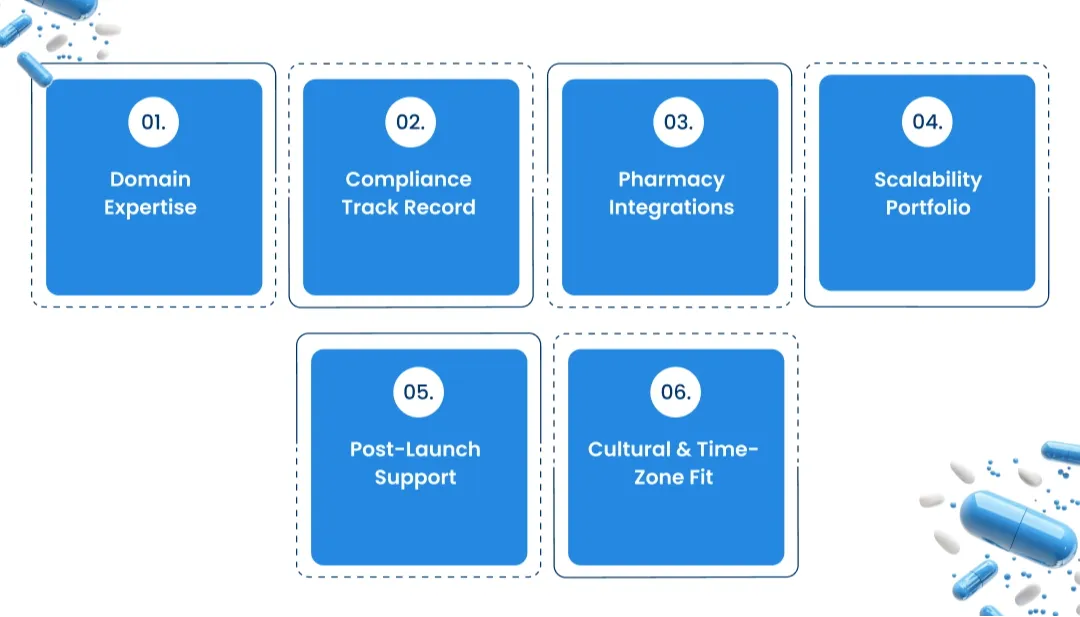
-
Domain Expertise: Prior HIPAA-, HL7-, or FHIR-based apps.
-
Compliance Track Record: Ability to document threat models, DPA, DPIA.
-
Pharmacy Integrations: Experience with McKesson, Cardinal, or local wholesalers.
-
Scalability Portfolio: Microservices, containerised deployments, CI/CD.
-
Post-Launch Support: SLAs for uptime, version updates, and security patches.
-
Cultural & Time-Zone Fit: Agile ceremonies, overlapping work hours.
Case-Study Lens: IMG Global Infotech’s modular approach lets healthcare clients add teleconsultation, IoT device sync, or loyalty wallets after the core launch keeping CAPEX predictable.
Future Outlook
By 2027–2028, expect:
-
Predictive Refills: AI anticipates therapy gaps and ships automatically.
-
Integrated Care Ecosystems: Medicine delivery, lab pickup, and at-home nurse visits in one super-app.
-
Blockchain Provenance: End-to-end authenticity stamps to squash counterfeits.
-
Smart Packaging: NFC-enabled blister packs auto-log adherence data back to the app.
-
Expanded Drone Corridors: Regulatory green lights in rural India and U.S. suburbs shrink delivery windows to under 30 minutes.
Conclusion
Medicine delivery apps have moved from “nice-to-have” to mission-critical for patient-centred care. They unlock last-mile accessibility, real-time data insights, and recurring revenue streams for every node in the healthcare value chain patients, providers, pharmacies, payers, and pharma manufacturers alike.
If you’re planning medicine delivery app development, partner with a seasoned medicine delivery app development company that can fast-track compliance, integration, and user trust. IMG Global Infotech offers end-to-end mobile app development services from ideation and UI/UX to HIPAA audits and scalable cloud ops.
-
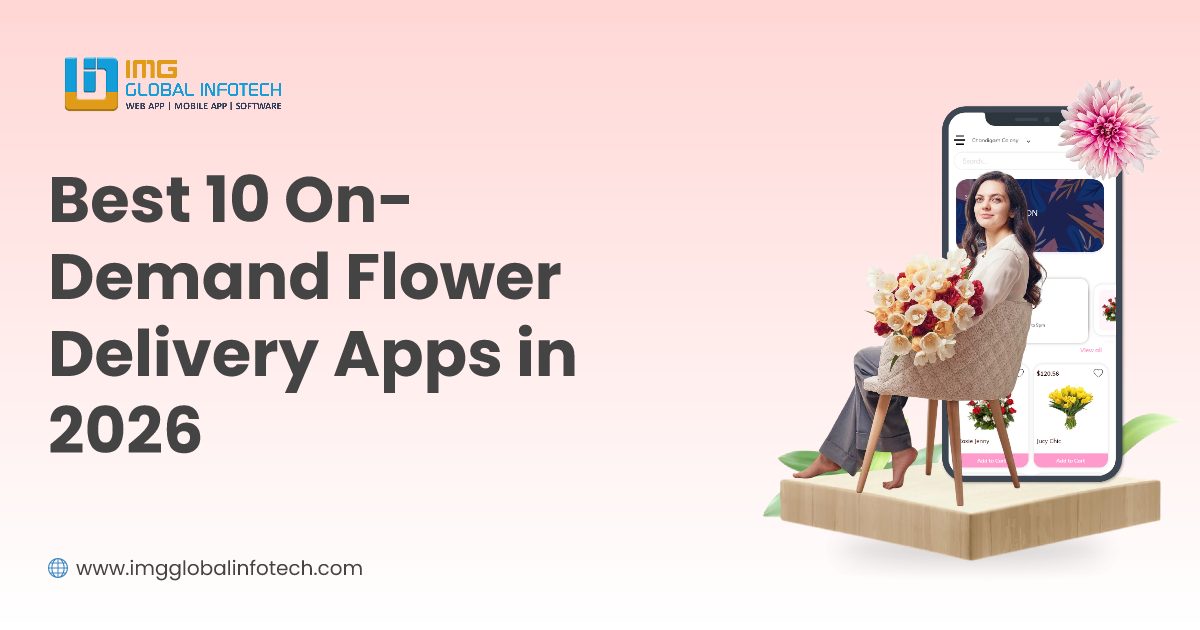 Top 10 Flower Delivery Apps in 2026
Top 10 Flower Delivery Apps in 2026
-
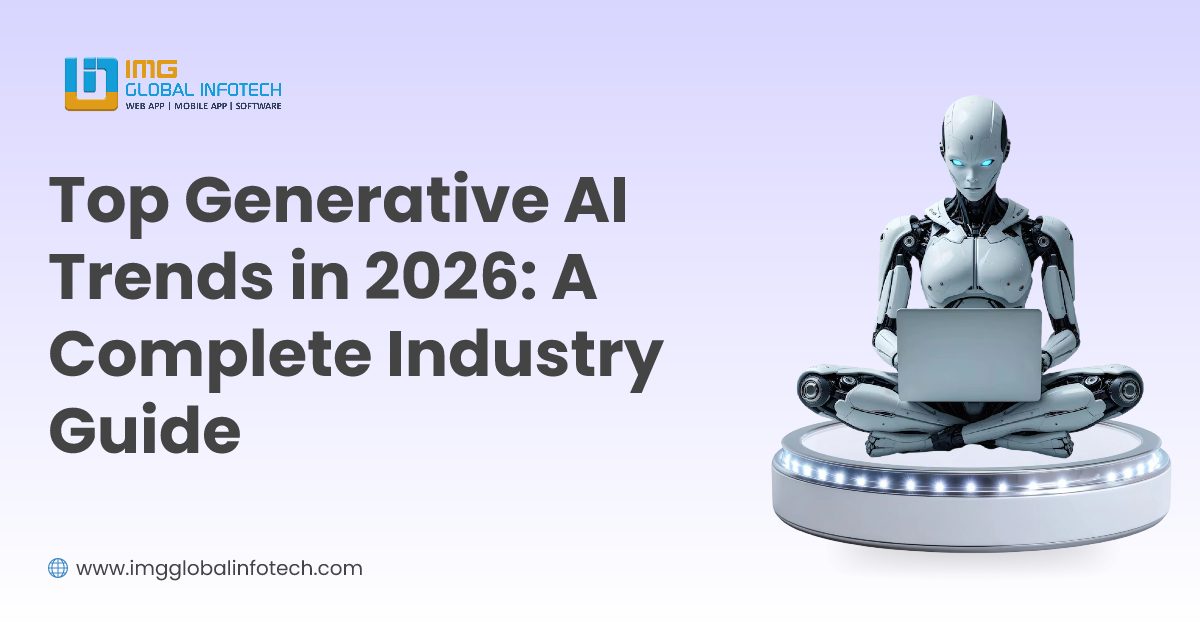 Top Generative AI Trends in 2026: A Complete Industry Guide
Top Generative AI Trends in 2026: A Complete Industry Guide
-
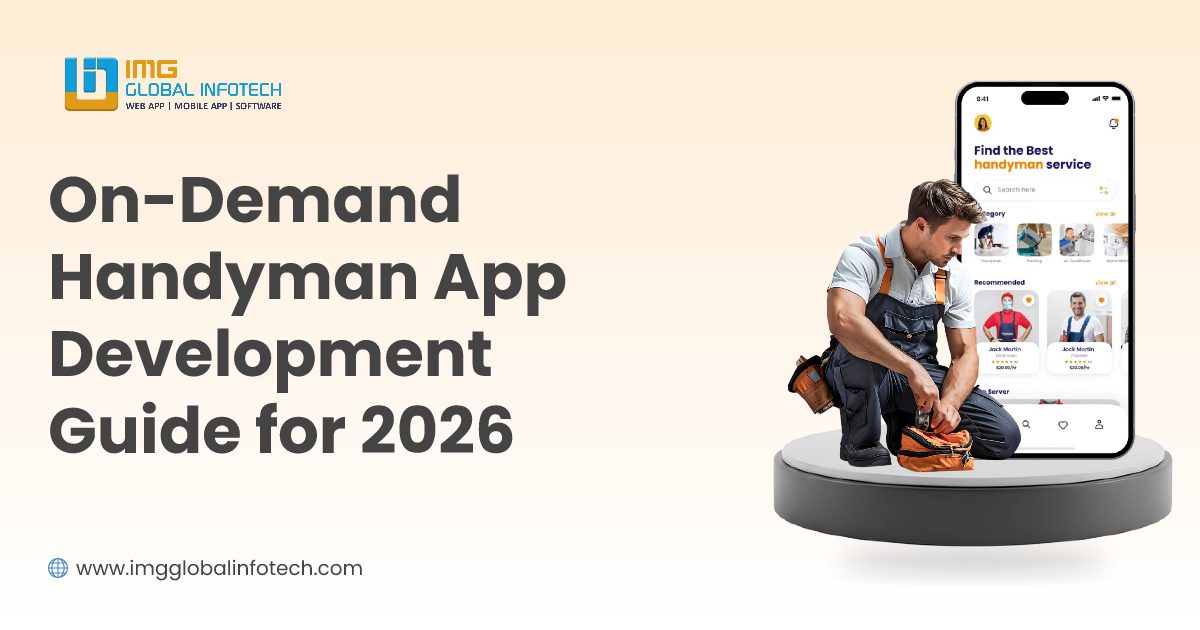 On-Demand Handyman App Development Guide for 2026
On-Demand Handyman App Development Guide for 2026
-
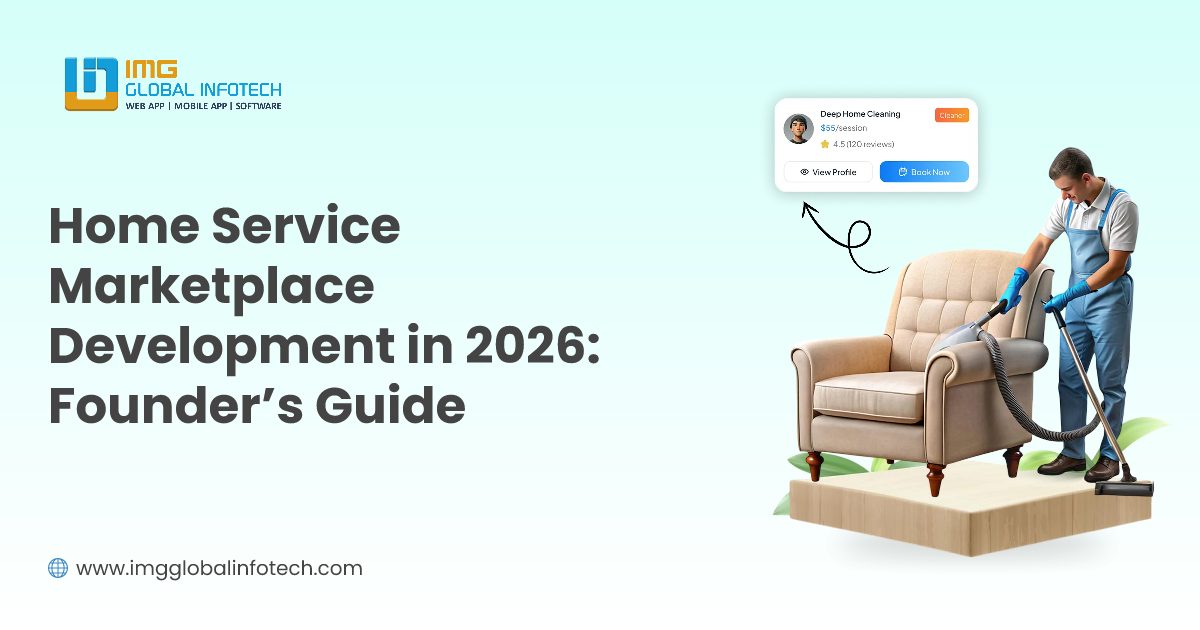 How to Build a Home Service Marketplace in 2026: Founder’s Guide
How to Build a Home Service Marketplace in 2026: Founder’s Guide
-
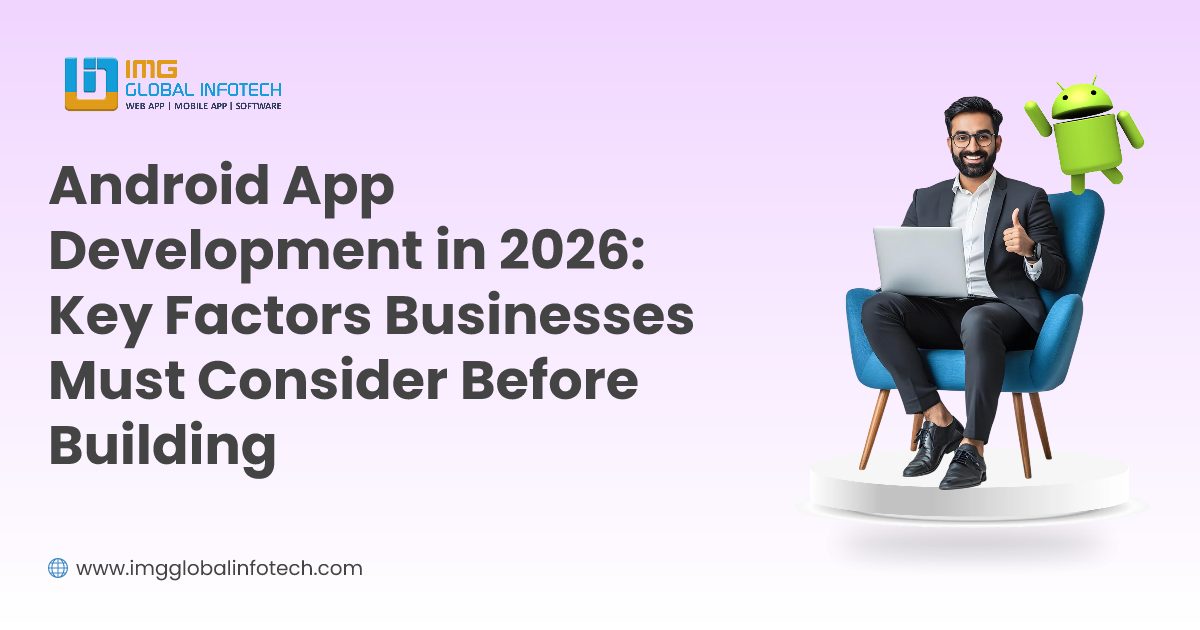 Android App Development in 2026: Key Factors Businesses Must Consider Before Building
Android App Development in 2026: Key Factors Businesses Must Consider Before Building
-
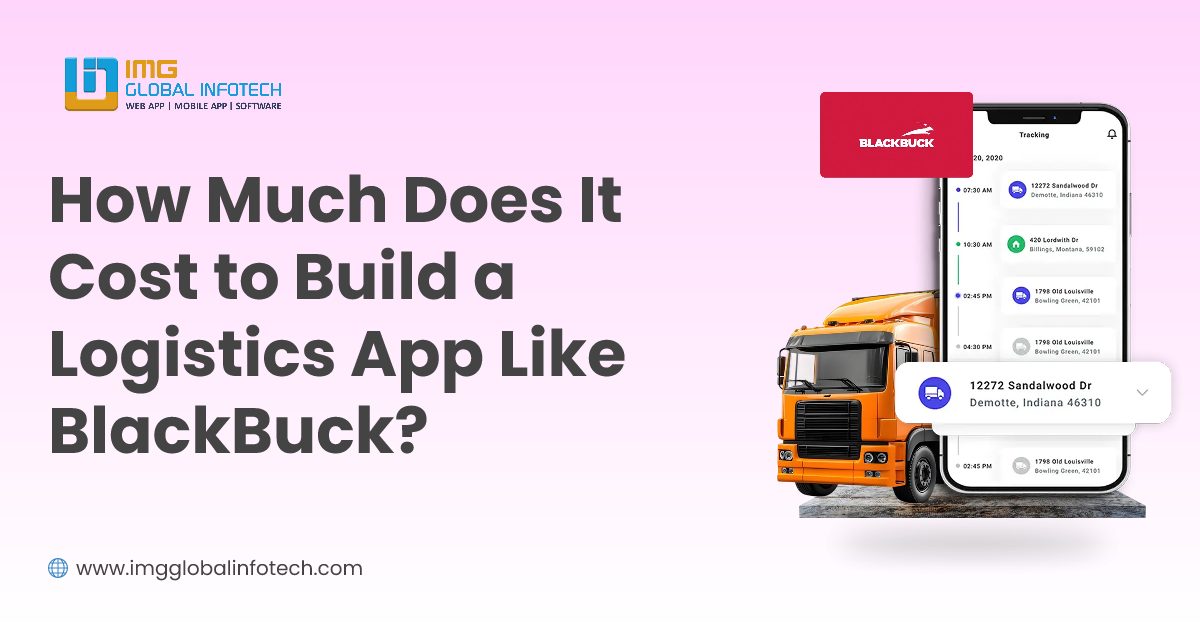 How Much Does It Cost to Build a Logistics App Like BlackBuck?
How Much Does It Cost to Build a Logistics App Like BlackBuck?
Dipti Singhal is a skilled Content Writing Specialist at IMG Global Infotech, with strong expertise in creating engaging, SEO-optimized content for various industries. She focuses on blending storytelling with effective keyword strategies to help businesses connect with their audience and improve their online visibility. Passionate about delivering high-quality content that drives real results, Dipti plays an essential role in strengthening the company’s digital presence.


